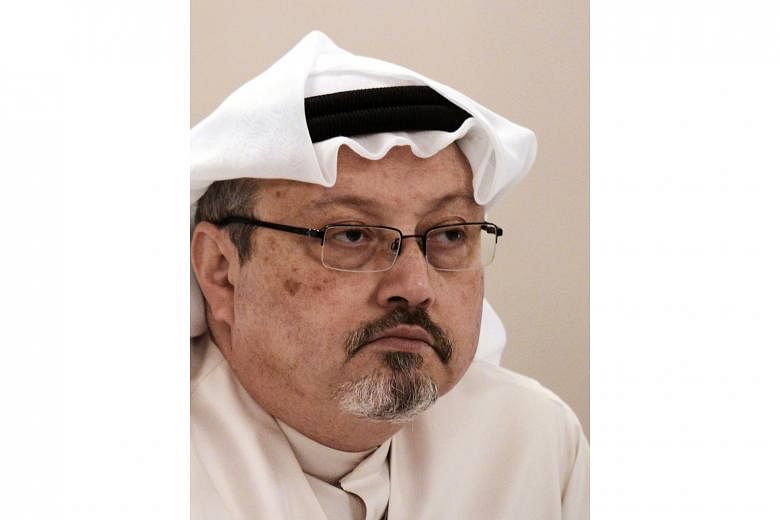RIYADH • Saudi Arabia is attempting a comeback on the global stage one year after journalist Jamal Khashoggi's murder, but the crisis has weakened the kingdom and undermined its de facto leader's ambitious reforms, analysts say.
Crown Prince Mohammed bin Salman, a self-styled moderniser shaking up the conservative petro-state, was feted by global leaders and business titans before the gruesome murder in Saudi Arabia's consulate in Istanbul, Turkey, on Oct 2 last year.
But the global fallout over the killing rendered the heir to the Arab world's most powerful throne a pariah, casting a shadow on his reforms, putting the kingdom's human rights record under the microscope and testing old alliances with Western powers.
The Crown Prince has since sought to shore up his tarnished reputation, launching slick public relations campaigns to win back foreign investment, while accelerating what analysts call the kingdom's "Eastward tilt" towards less critical allies such as China and India. But that has had only limited success.
Mr Bruce Riedel, a former Central Intelligence Agency (CIA) officer and author of a book on Saudi Arabia titled Kings And Presidents, said: "The spectre of Jamal Khashoggi hangs over the kingdom of Saudi Arabia. The murdered journalist and commentator has not been forgotten, as Crown Prince Mohammed bin Salman hoped."
The Crown Prince tells PBS in a forthcoming documentary that he accepted responsibility for the killing because it happened "under my watch" - but he denied having prior knowledge.
The CIA has reportedly concluded that the Crown Prince, who controls all major levers of power in the Saudi government, likely ordered the killing.
United States President Donald Trump has emphasised Saudi Arabia's importance as a buyer of American arms and a bulwark against common foe Iran, but American lawmakers appear to be in no mood to give the Crown Prince a free pass over the murder.
US House Speaker Nancy Pelosi has cited Mr Khashoggi's murder in opposing a potential strike on Iran in retaliation to the attacks on Saudi oil facilities. "I don't see any responsibility for us to protect and defend Saudi Arabia," she told American radio network NPR.
The scandal also appears to have impeded the Crown Prince's economic reforms, which seek to reduce the kingdom's reliance on oil revenues and boost private sector investment.
Ms Ellen Wald, author of the book Saudi Inc, said: "Before the murder, Saudi Arabia was stepping on the accelerator of foreign business partnerships. But the Khashoggi murder was like hitting a hill. The momentum has slowed, even if progress is still in the right direction."
Last Friday, Saudi Arabia announced the launch of tourism visas, as part of its push to diversify the economy - but that was an announcement that many had expected more than a year ago.
Also mired in delays is the planned stock market listing of state oil giant Saudi Aramco, a cornerstone of the Crown Prince's reform agenda that was initially scheduled for last year.
Despite all this, the murder has not threatened to unseat the Crown Prince.
Instead, he has tightened his grip on military and security agencies, and launched a crackdown on political rivals as well as conservative clerics and women activists.

